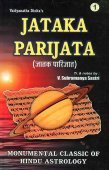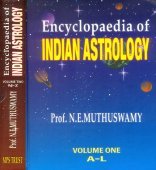Garga, Gārga: 22 definitions
Introduction:
Garga means something in Hinduism, Sanskrit, the history of ancient India, biology. If you want to know the exact meaning, history, etymology or English translation of this term then check out the descriptions on this page. Add your comment or reference to a book if you want to contribute to this summary article.
Garga has 20 English definitions available.
Languages of India and abroad
Sanskrit dictionary
[Deutsch Wörterbuch]
Source: Cologne Digital Sanskrit Dictionaries: Böhtlingk and Roth Grosses Petersburger WörterbuchGarga (गर्ग):—[Die Uṇādi-Affixe 1, 127.] [Kāśikīvṛtti] zu [Pāṇini’s acht Bücher 1, 1, 63.]
1) m. Nomen proprium verschiedener Personen: eines alten Weisen [Hemacandra’s Anekārthasaṃgraha 2, 31.] [Pravarādhyāya] in [Weber’s Verzeichniss 61.] [Akademische Vorlesungen 148.] bhāradvāja und āṅgirasa [Weber’s Indische Studien 3, 214.] Astronom [Lassen’s Indische Alterthumskunde I, 829. fg.] [Akademische Vorlesungen 225. fg.] [Mahābhārata 9, 2132. fgg.] [Varāhamihira’s Bṛhajjātaka S. 21, 2. 5. 23, 4 u.s.w.] [Viṣṇupurāṇa 206.] [Weber’s Indische Studien 1, 17.] Mediciner [Weber’s Verzeichniss No. 944.] Jurist [1017. 1046.] kuṇirgargaḥ [Mahābhārata 9, 2981. fg.] catuḥṣaṣṭyaṅgamadadatkalājñānaṃ mamādbhutam (maheśvaraḥ) sagt Garga [13, 1334.] Sohn des Königs Vitatha [Harivaṃśa 1732.] Enkel dieses Königs (seine Enkel werden Brahmanen) [Viṣṇupurāṇa 450.] [Bhāgavatapurāṇa 9, 21, 1. 19.] vṛddhagarga [Akademische Vorlesungen 148.] pl. die Nachkommen des Garga (s. gārgya) [Pāṇini’s acht Bücher 2, 4, 64.] [Vopadeva’s Grammatik 7, 14.] [Aśvalāyana’s Śrautasūtrāni 12, 12.] [Pravarādhyāya] in [Weber’s Verzeichniss 62.] [Mahābhārata 7, 8728.] gargāḥ prāvareyāḥ [Kāṭhaka-Recension 13, 12] in [Weber’s Indische Studien 3, 475.] Am Anf. eines comp., als gen. aufgefasst, = gārgya, z. B. gargakulam oder gārgyakulam = gārgyasya oder gārgyayoḥ kulam; gargāṇāṃ kulam nur = gargakulam [Pāṇini’s acht Bücher 2, 4, 64, Vārttika von Kātyāyana.,] [Scholiast] gargatrirātra (gaṇa yuktārohyādi zu [Pāṇini’s acht Bücher 6, 2, 81]), garga ( [Pāṇini’s acht Bücher 6, 2, 97,] [Scholiast]) oder gargatryaha Name einer Feier [Aśvalāyana’s Śrautasūtrāni 10, 2.] [Kātyāyana’s Śrautasūtrāṇi 23, 2, 8.] [Śāṅkhāyana’s Śrautasūtrāṇi 16, 22, 2.] [Maśaka’s Kalpasūtrāni] in [Weber’s Verzeichniss 73.] [Scholiast] zu [Kātyāyana’s Śrautasūtrāṇi 4, 3, 7.] — b) Stier. — c) Regenwurm [Hemacandra’s Anekārthasaṃgraha 2, 31.] Die beiden appell. Bedd. kennen weder [WILSON] noch [Śabdakalpadruma] garga in der Bed. Regenwurm könnte ein verlesenes gaḍu sein. —
2) f. gargā Nomen proprium einer Frau [Rājataraṅgiṇī 5, 250.] —
3) gargī Nomen proprium einer Frau: gargī vācaknavī [ĀŚV. GṚHY. 3, 4.] — Vgl. gārgī, gārgya .
--- OR ---
Gārga (गार्ग):—
1) adj. von gārgya in Verbindung mit saṃgha, aṅka und lakṣaṇa [Pāṇini’s acht Bücher 4, 3, 127,] [Scholiast] —
2) verächtliches metron. von gārgī [Pāṇini’s acht Bücher 4, 1, 147,] [Scholiast]
--- OR ---
Garga (गर्ग):—
1) a) (dieses [Z. 1] nach m. hinzuzufügen) Bhāradvāja Verfasser von [Ṛgveda 6, 47.] — d) Bez. eines best. Tactes [SAM̃GĪTADĀM. im Śabdakalpadruma]
--- OR ---
Gārga (गार्ग):—
2) gārgasya (fehlerhaft für gārgyasya, wie die v.l. hat) kāṇvasya [Scholiast] zu [Prātiśākhya zur Vājasaneyisaṃhitā 4, 174.]
Source: Cologne Digital Sanskrit Dictionaries: Sanskrit-Wörterbuch in kürzerer FassungGarga (गर्ग):——
1) m. — a) Nomen proprium verschiedener Personen. Pl. ihr Geschlecht. — b) ein best. Tryaha [Vaitānasūtra] — c) ein best. Tact. — d) *Stier. — e) *Regenwurm. —
2) f. ā und ī ein Frauenname.
--- OR ---
Gārga (गार्ग):——
1) *Adj. von gārgya. —
2) m. — a) ein best. Tact [Saṃgitasārasaṃgraha 236.] — b) *verächtliches Metron. von gārgī. — c) fehlerhaft für gārgya Patron. —
3) f. ī — a) f. zum Patron. gārgya. — b) Beiname der Durgā.
Sanskrit, also spelled संस्कृतम् (saṃskṛtam), is an ancient language of India commonly seen as the grandmother of the Indo-European language family (even English!). Closely allied with Prakrit and Pali, Sanskrit is more exhaustive in both grammar and terms and has the most extensive collection of literature in the world, greatly surpassing its sister-languages Greek and Latin.
See also (Relevant definitions)
Starts with (+28): Garga-yavana, Gargabhagini, Gargabhargavika, Gargabharya, Gargabhumi, Gargacarya, Gargacaryaca Muhurtta, Gargacaryaca-muhurta, Gargad, Gargada, Gargadi, Gargadigana, Gargadina, Gargaj, Gargajataka, Gargaka, Gargakula, Gargamanorama, Gargamaya, Garganda.
Ends with: Jyotirgarga, Kunigarga, Laghugarga, Pailagarga, Prashnagarga, Vriddhagarga.
Full-text (+309): Gargya, Gargiya, Gagga, Vriddhagarga, Gargi, Gargabharya, Gargaka, Gargamaya, Jyotirgarga, Gargasrotas, Gargabhargavika, Pailagarga, Laghugarga, Gargavahana, Gargabhagini, Gargashiras, Gargiputrakayani, Gargabhumi, Gargasamhita, Gargika.
Relevant text
Search found 60 books and stories containing Garga, Gārga, Gargā, Gārgā; (plurals include: Gargas, Gārgas, Gargās, Gārgās). You can also click to the full overview containing English textual excerpts. Below are direct links for the most relevant articles:
Vakyapadiya of Bhartrihari (by K. A. Subramania Iyer)
Verse 2.221 < [Book 2 - Vākya-kāṇḍa]
Verse 2.386-387 < [Book 2 - Vākya-kāṇḍa]
Verse 3.14.160-161 < [Book 3 - Pada-kāṇḍa (14): Vṛtti-samuddeśa (On Ccomplex Formation)]
Garga Samhita (English) (by Danavir Goswami)
Verse 5.9.11 < [Chapter 9 - The Happiness of the Yadus]
Verses 1.15.41-45 < [Chapter 15 - Revelation of the Universal Form to Nanda’s Wife]
Verse 1.15.65 < [Chapter 15 - Revelation of the Universal Form to Nanda’s Wife]
Rig Veda (translation and commentary) (by H. H. Wilson)
Vasudevavijaya of Vasudeva (Study) (by Sajitha. A)
Taddhita (in Sanskrit grammar) < [Chapter 3 - Vāsudevavijaya—A Grammatical Study]
Vedāṅga (six auxiliary disciplines) < [Chapter 5 - Impact of other Disciplines in Vāsudevavijaya]
Theme of the Vāsudevavijaya < [Chapter 2 - Vāsudevavijaya—Authorship and Content Analysis]
Brihad Bhagavatamrita (commentary) (by Śrī Śrīmad Bhaktivedānta Nārāyana Gosvāmī Mahārāja)
Verse 1.3.24 < [Chapter 3 - Prapañcātīta (beyond the Material Plane)]
Verse 1.3.25 < [Chapter 3 - Prapañcātīta (beyond the Material Plane)]
Verse 1.6.125 < [Chapter 6 - Priyatama (the most beloved devotees)]
Manusmriti with the Commentary of Medhatithi (by Ganganatha Jha)
Verse 9.234 < [Section XXXI - Miscellaneous Punishments]
Verse 3.171 < [Section VIII - Śrāddhas]
Verse 3.109 < [Section VII - Duties of the Householder]
Related products




